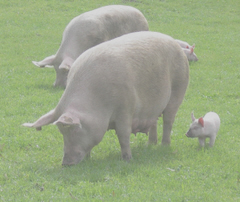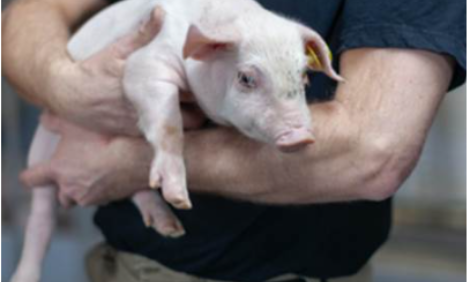



Salt Poisoning or Water Deprivation in Pigs
Pigs suffering from salt poisoning or water deprivation can be severely affected and in some cases it can become fatal, according to the Department of Agriculture and Food for Western Australia.Detecting the early signs of compromised animals will allow for immediate action to be taken to help those suffering recover and to reduce the risk of other stock falling to this ailment.
Salt poisoning or water deprivation occurs when weaner, grower or finisher pigs are deprived of water for more than 24 hours. The same syndrome is seen when pigs consume excess salt in either the feed or water or both.
The highest death rate and the worst clinical signs occur if unlimited water is reintroduced to pigs after a period with no water.
The higher the salt levels in the feed, the worse the poisoning in cases of water deprivation.

What are the causes?
Salt poisoning or water deprivation can occur following pump break-downs, blockage of water lines and nipple drinkers or when pigs do not drink because the water is too hot.
Drinking water becomes too hot when it is delivered by pipes that are exposed to the summer sun for about 30 metres or more.
What are the signs?
Clinical signs are initially thirst, constipation, skin irritation and lack of appetite.
Nervous signs follow, especially when unrestricted water is suddenly available after a period without water. Nervous signs include ear twitching, aimless wandering, bumping into objects, dog-sitting, falling over sideways and apparent deafness and blindness. Affected pigs may move round in a circle using one foot as a pivot and may convulse.
Convulsions re-occur with remarkable regularity at approximately seven minute intervals.
Salt poisoning can be diagnosed by characteristic microscopic changes in the brain of pigs that have died.
What is the treatment?
Water should be reintroduced gradually to pigs that have been without water for more than 24 hours. Severely dehydrated animals need to be rehydrated gradually so that they do not ingest large quantities of water quickly.
Electrolytes in water can be used for rehydrating affected animals.
Pigs showing nervous signs need to be placed in a darkened area with bedding material to help prevent injuries.
May 2014








